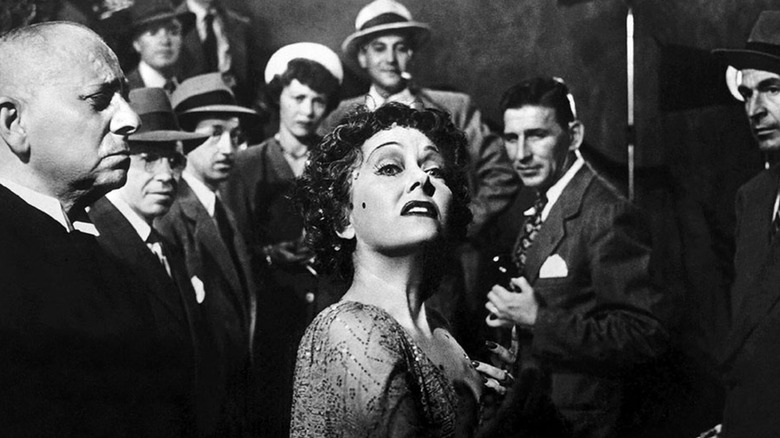
Directors were regarded as mere workmen during the Golden Age of Hollywood. However, the studio system still produced some filmmakers with such singular vision and distinctive work that they formed the bedrock of Auteur theory. One of those was Samuel "Billy" Wilder.
Born in Austria-Hungary to a Jewish family, Wilder left Europe to escape the Nazis and then found himself in Hollywood in 1933. His 47-year career saw him direct 27 films; he has a writing credit on all but one. That he wrote his own screenplays instead of being a gun for hire on studio-commissioned scripts is why his films feel so unique. The results earned him two Best Director wins and three Best Screenplay wins. These accolades speak for themselves. How did he do it? Beyond his obvious talent, Wilder felt that a director had five roles to fill when making a movie. Here's what they were.
A Policeman
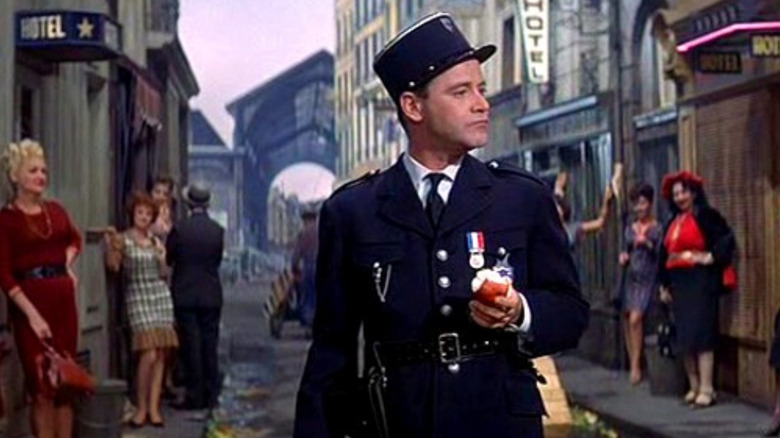
When it came to making movies, Billy Wilder was a man who knew what he wanted. To ensure that his moves were made right, he had to make sure his cast and crew understood those desires too. That's why he felt one of the jobs of a film director was to be a policeman. On set, the director is in charge of setting ground rules and enforcing them. An effective director is thus one who has the vigilance of a lawman.
Interviewed by Sight and Sound in 1967, Wilder revealed his "policeman" attitude came before he even started directing. He was very protective of his scripts and would march onto sets to make sure they were respected.
"I had made myself rather unpopular as a writer at Paramount because I would come on the set and they would chase me off it. I was always trying to put them right on misinterpretations. I was known as 'The Terror': they would say, 'Keep Wilder away from us, he's always raising hell, he wants everything done his way.'"
This attitude is actually what made Wilder into a director. To spare directors the trouble of his policing, Paramount producer Arthur Hornblow suggested he direct his own scripts. Wilder took his advice and made "The Major and the Minor." The rest is history.
A Midwife
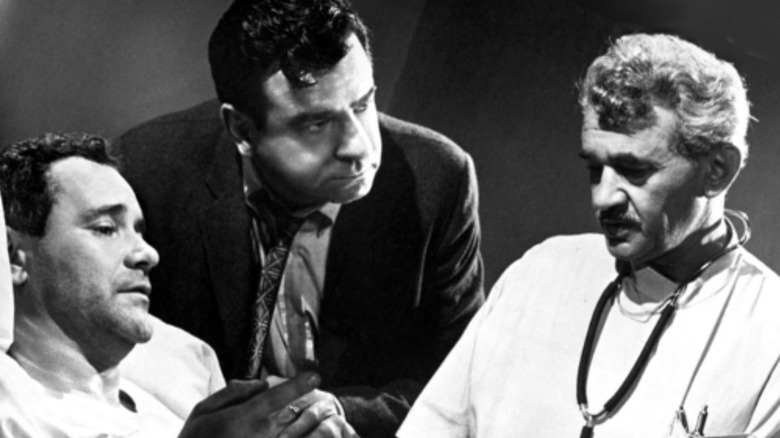
Wilder's next tip on what a director needs is to be concerned the creative side of filmmaking. To Wilder, a director must be a midwife, guiding a film to fruition just as a nurse does a newborn to life. All artists are midwives, in a way, but especially film directors. Writing a book or painting a portrait is a solo project, whereas a director's job is to collaborate with others. They must oversee the project but be mindful of changes.
In the aforementioned "Sight and Sound" interview, Wilder divulged how he allowed experimentation on his sets. He didn't like to use rehearsals or strict blocking; instead, he discussed his general plans for the scene with actors and crew while encouraging them to pitch in.
"We just fool around with ideas until the scene comes to life for all of us, then I talk to the cameraman and the cutter separately about chopping the whole thing up into separate shots. Then I go in and I might do 20 takes until it's exactly right."
A director may have to be a policeman while on set, but Wilder showed you can balance that with healthy experimentation too.
A Psychoanalyst
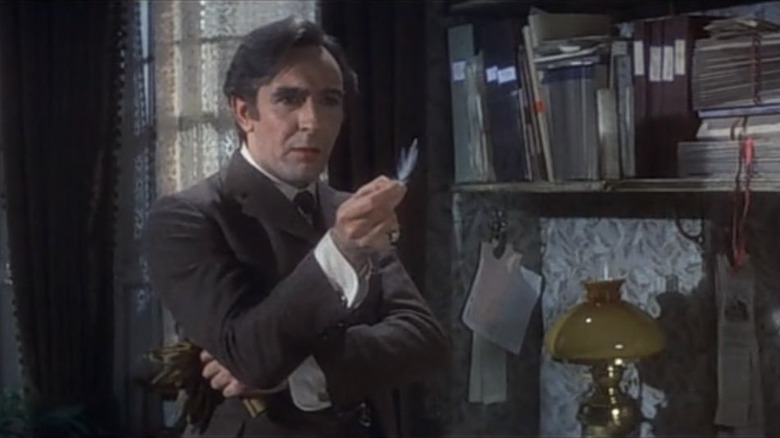
As a writer-director who penned his own scripts, Wilder would've been extra concerned about character and motivation. This need to understand his characters is likely why he said that a director's third job is to be a psychoanalyst. When you're a film director, you aren't just corralling fictional characters trapped on a page, though. You have actors, crew, and producers to deal with. Understanding what they want will not only make your life easier, it can help your art.
In a 1999 conversation with Cameron Crowe for Vanity Fair, Wilder revealed that Fred MacMurray was initially reluctant to play the murderous Walter Neff in "Double Indemnity." MacMurray, a comedian, doubted his own acting capability, but Wilder saw he had it inside him to pull off the part.
As a director, you have many masters to please beyond producers and studio bosses, though. You must also please your audience, or else you won't get to keep making movies. According to Wilder's frequent collaborator Charles Brackett, understanding his audience was Wilder's greatest strength:
"[Wilder has] exuberant vulgarity and... magnificent awareness of the audience. When it comes to guessing audience reaction, Billy is almost never wrong."
A Sycophant
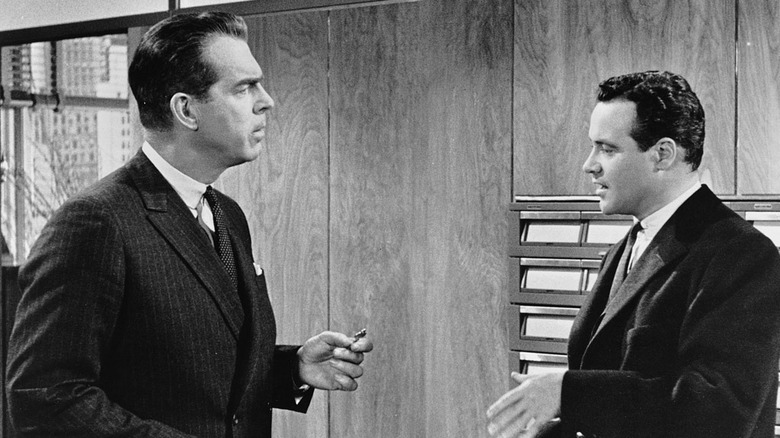
Wilder came up in Hollywood during the Studio System era when the money men's power was at its peak. Directors and actors were contract players, installed like workmen on movie sets to meet quotas. These strict hierarchies meant that flattering the egos of those on top was a necessity.
This seems to have been Wilder's least favorite role that a director must play. It makes sense that sycophancy wouldn't come naturally to him, given how "my way or the highway" he could be. Wilder bemoaned to Sight and Sound, "Today [in 1967], we spend 80 percent of the time making deals and 20 percent making pictures."
Indeed, when it came to actors, where he had more power. Wilder seemed to prefer the stick over the carrot. Recounting how he finally got Fred MacMurray in "Double Indemnity" to Cameron Crowe, Wilder said, "Look, you have now arrived in comedy, you're at a certain point where you either have to stop or you have to jump over the river and start something new."
A Bastard
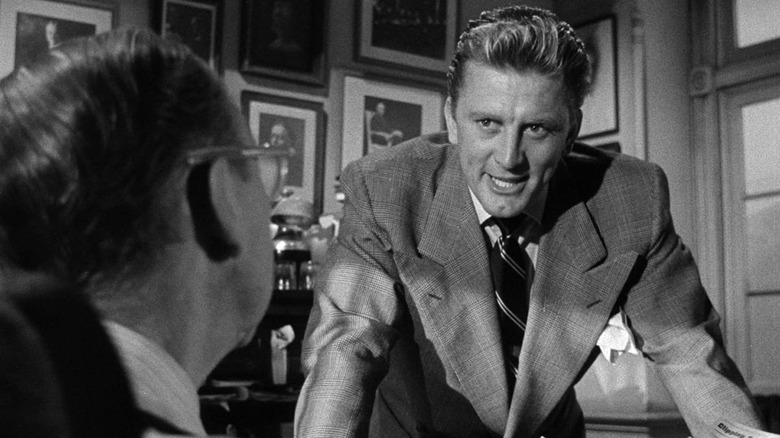
After the first screening of "Sunset Boulevard," MGM head Louis B. Mayer had his doubts about the movie. Wilder's response? "I am Mr. Wilder, and go f**k yourself." This was, putting it mildly, a risky move. "Sunset Boulevard" was only Wilder's eighth film, while Mayer had been a power player in Hollywood since the 1920s. If "Sunset Boulevard" hadn't been a success, this could've doomed Wilder's career. Thankfully, that's just what the film was, and Wilder's confidence in that is why he spoke back to Mayer.
"[Mayer] was astonished. He was standing with the great MGM bosses who were below him, there at the studio, Mr. [Eddie] Mannix and Mr. [Joe] Cohen. And that so astonished them, that somebody had the guts to say, "Why don't you go and f**k yourself," because I knew that I had a good picture there."
Wilder's advice that a filmmaker has to be a "bastard" basically comes down to fighting fire with fire. Plenty of producers won't hesitate to throw you under the bus, so a director can't let them. It's notable that he doesn't seem to consider being both a sycophant and a bastard contradictory. The unspoken implication is that a director has to know which to be depending on who they're dealing with.
Read this next: The Horror Movies We Can't Wait To See In 2022
The post The 5 Things Billy Wilder Believed Every Director Needs To Be appeared first on /Film.
0 Commentaires